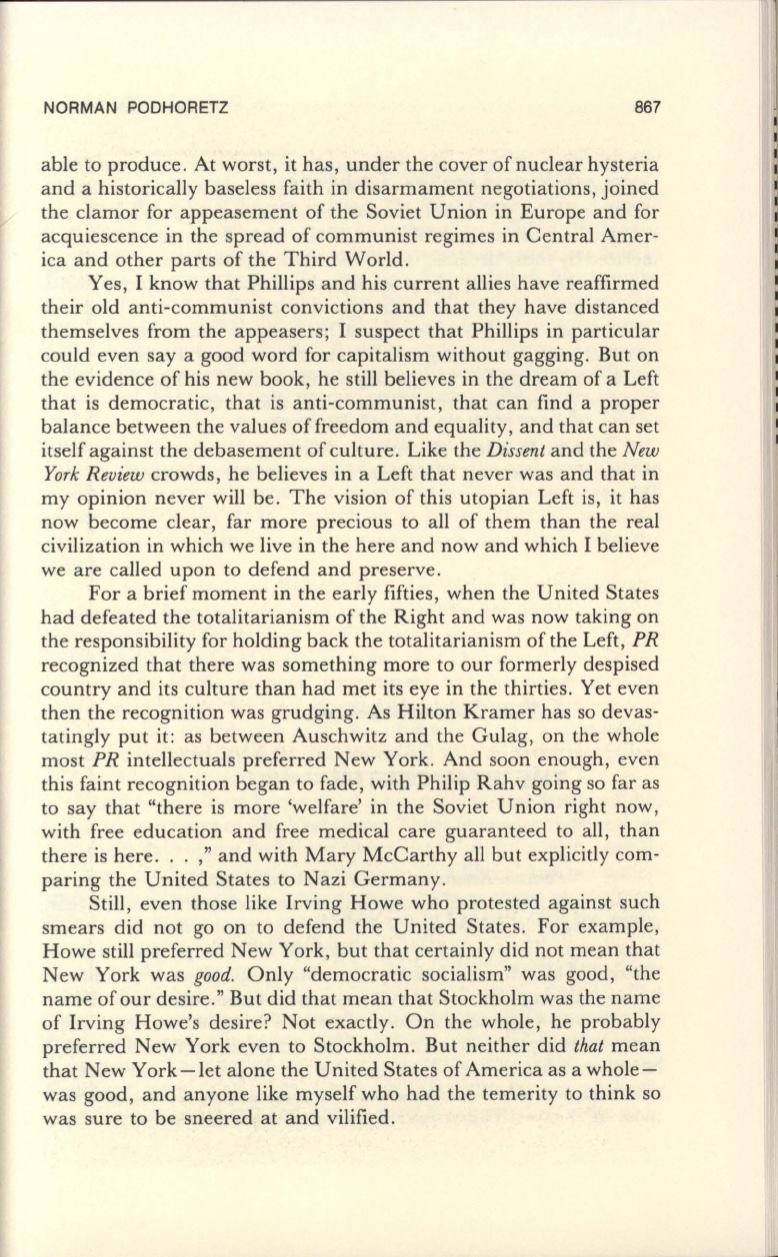
NORMAN PODHORETZ
867
able to produce . At worst, it has, under the cover of nuclear hysteria
and a historically baseless faith in disarmament negotiations, joined
the clamor for appeasement of the Soviet Union in Europe and for
acquiescence in the spread of communist regimes in Central Amer–
ica and other parts of the Third World .
Yes, I know that Phillips and his current allies have reaffirmed
their old anti-communist convictions and that they have distanced
themselves from the appeasers; I suspect that Phillips in particular
could even say a good word for capitalism without gagging. But on
the evidence of his new book, he still believes in the dream of a Left
that is democratic, that is anti-communist, that can find a proper
balance between the values offreedom and equality, and that can set
itself against the debasement of culture. Like the
Dissent
and the
New
York Review
crowds, he believes in a Left that never was and that in
my opinion never will be. The vision of this utopian Left is, it has
now become clear, far more precious to all of them than the real
civilization in which we live in the here and now and which I believe
we are called upon to defend and preserve.
For a brief moment in the early fifties, when the United States
had defeated the totalitarianism of the Right and was now taking on
the responsibility for holding back the totalitarianism of the Left,
PR
recognized that there was something more to our formerly despised
country and its culture than had met its eye in the thirties. Yet even
then the recognition was grudging. As Hilton Kramer has so devas–
tatingly put it: as between Auschwitz and the Gulag, on the whole
most
PR
intellectuals preferred New York. And soon enough, even
this faint recognition began to fade, with Philip Rahv going so far as
to say that "there is more 'welfare' in the Soviet Union right now,
with free education and free medical care guaranteed to all, than
there is here... ,"and with Mary McCarthy all but explicitly com–
paring the United States to Nazi Germany.
Still, even those like Irving Howe who protested against such
smears did not go on to defend the United States. For example,
Howe still preferred New York, but that certainly did not mean that
New York was
good.
Only "democratic socialism" was good, "the
name of our desire." But did that mean that Stockholm was the name
of Irving Howe's desire? Not exactly. On the whole, he probably
preferred New York even to Stockholm. But neither did
that
mean
that New York -let alone the United States of America as a whole–
was good, and anyone like myself who had the temerity to think so
was sure to be sneered at and vilified.


